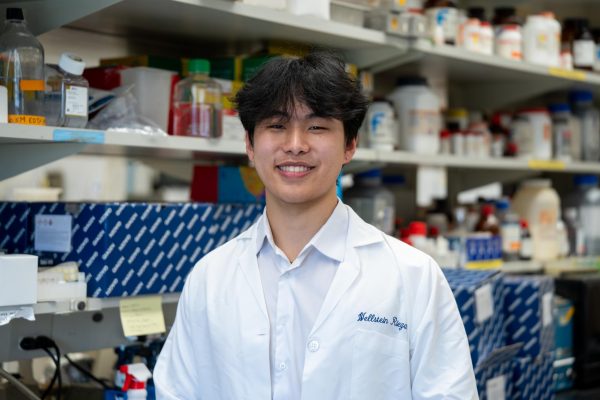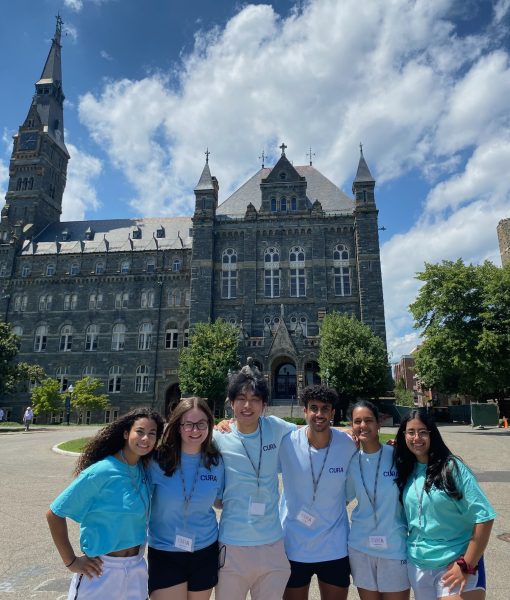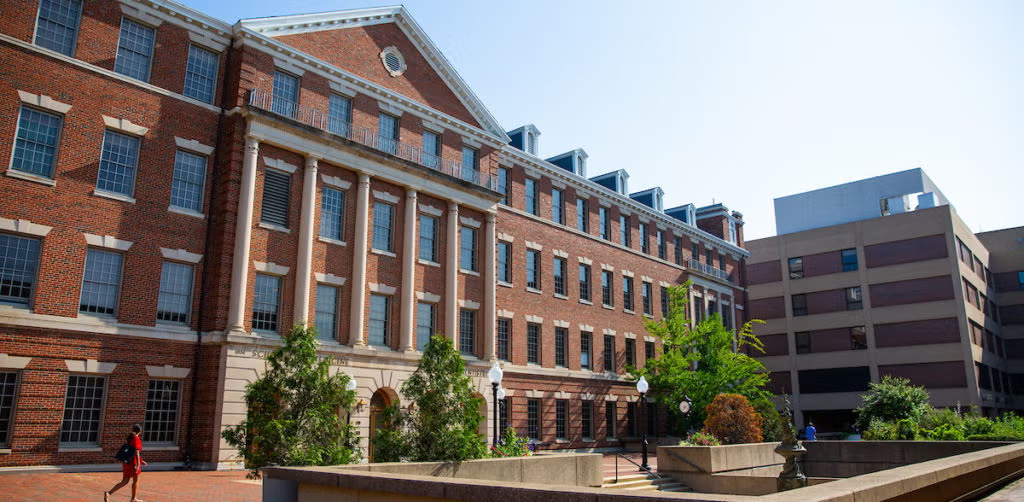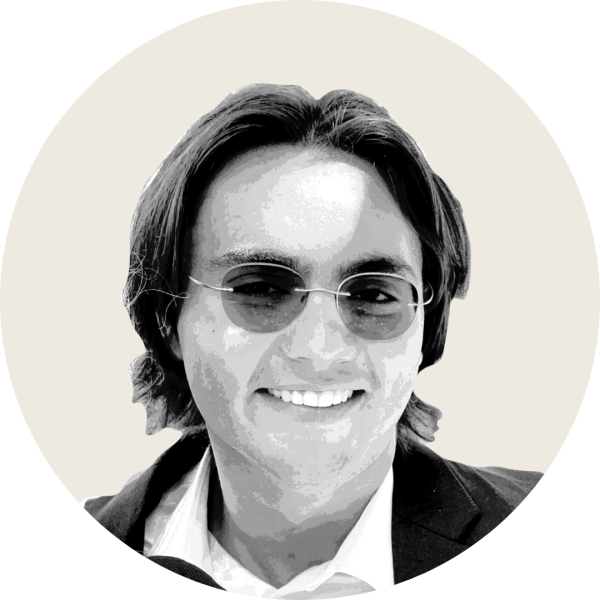A Georgetown University junior and immunology researcher won the Barry Goldwater Scholarship, a prestigious grant for science and engineering students, the university announced April 3.
Harry Sun (CAS ’26) received the $7,500 award for his research in immunology with a focus on understanding how cancer interacts with immune systems to develop more effective treatments. Sun will join 441 other recipients of the Goldwater Scholarship, established in 1986 to honor Sen. Barry Goldwater (R-Ariz.) through supporting the next generation of scientific leaders.

Sun said he was surprised and thankful to learn he earned the award.
“When I found out, there was a mixture of emotions — a little bit of shock, a little bit of being super excited, being overjoyed, but also a familiar gratefulness,” Sun told The Hoya. “This was a reflection of my own efforts, yes, but also my mentors, and a lot of people were a part of this journey.”
Sun said clinical research allows students and scientists to broaden the scope of medical science to unlock new ways to treat patients.
“What really is motivating for me is the gaps in our current understanding of how these conditions, these diseases, work,” Sun said. “I want to be able to address that, and I think the best way to do that is clinical research. There’s no way to figure out how to improve our health care, how to help other people, without research.”
Sun has conducted research in labs at the University of Connecticut, the National Institute of Allergy and Infectious Diseases (NIAID) — a federal immunology research center — and Georgetown University Medical Center (GUMC). He also co-authored a June 2024 study detailing the underrepresentation of elderly patients in clinical trials.
Hao Jin, director of the NIAID lab where Sun worked, said Sun was an important contributor to the lab and an adept researcher.
“He consistently demonstrated a strong work ethic and a passion for his research,” Jin wrote to The Hoya. “As a researcher, Harry was both independent and receptive to feedback. He often took the initiative in exploring new ideas while maintaining a high level of curiosity and critical thinking.”
“Harry’s intellectual curiosity, drive for excellence and passion for scientific discovery were key traits that helped him earn the Goldwater Scholarship,” Jin added.
Sun said he feels his experience and self-motivation allowed him to build a well-rounded application.
“Some of the strong parts of my application were the diversity of research experiences I’ve had,” Sun said. “It’s important to be able to consistently learn and be able to be an independent thinker — not just contributing to research, but also playing a significant role in the research, being able to set up your own experiments.”
Sun said he is grateful for his mentors’ support, who taught him strong skills and values.
“My personal mentors have really sculpted not only the techniques that I know I’m able to perform towards research, but also the way I think about and approach specific problems,” Sun said. “They are the inspiration for me to research.”
Sidharth Jain (GRD ’25, MED ’27), one of Sun’s research mentors at the GUMC lab, said Sun stands out because of his passion for helping others through research, which Jain said reflects Georgetown’s value of cura personalis.

“Harry has been an absolute pleasure to work with,” Jain wrote to The Hoya. “From his first day, he was very eager to learn and came with a sense of curiosity and interest that you rarely see in other students. I was struck initially not only by his scientific acumen, but by his thoughtfulness and interest in philosophy — a real embodiment of ‘cura personalis.’”
Dr. Anton Wellstein, a GUMC professor of oncology, said Sun’s humility and dedication while working in the oncology lab impressed him.
“He’s very disciplined, and it’s very impressive,” Wellstein told The Hoya. “When I wrote his recommendation, it was easy to write because he’s such an outstanding person — as a human being as well as a scientist.”
“He is somebody who will do well,” Wellstein added.
Jain said Sun’s nature makes him a good collaborator and an even stronger researcher.
“Despite being incredibly high-achieving, Harry is also just a fun person to be around — he’s thoughtful, but also is constantly smiling and laughing, and it’s very easy to work with and talk to him,” Jain wrote. “He’s an excellent communicator, writer and learner and has a lot of drive to learn.”
Sun said while he is unsure what research he plans to pursue, his central goal will be to discover new ways to help others.
“Research is a way for me to try to figure out a bit more about what’s going on in a way that we don’t currently know,” Sun said. “I want to be able to contribute and see where I see myself — how can I continue this research to help other people in a way that we can’t currently do right now.”








